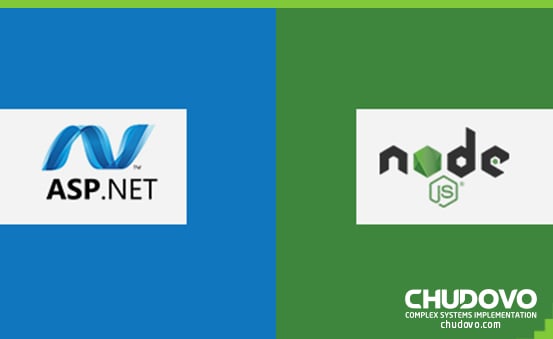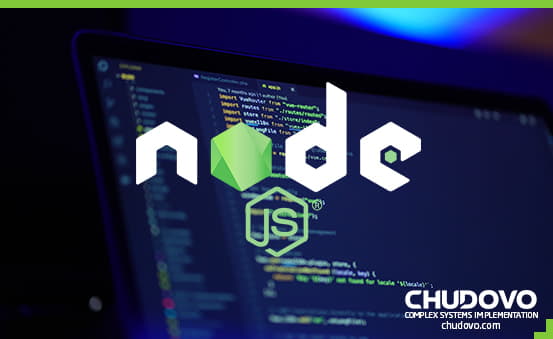Top NPM Packages for Node JS Developers in 2024
Node.js is a significant opening in the landscape of back-end development. Its non-blocking, event-driven architecture and the sprawling ecosystem of NPM packages make it a go-to setup for developers looking to build scalable and efficient web applications. From utilities that optimize performance to frameworks that scaffold your applications and from security modules that secure your code to testing libraries to build its robustness, the NPM package entails a range of functionalities to improve development efficiency, code quality, and application performance.
With the onset 2024, let’s unravel the most essential and innovative NPM packages that have garnered prominence and utility in the Node.js universe. Whether you’re a seasoned developer or a beginner, these NPM packages promise to arm you with the latest and greatest tools that the Node.js environment has to offer. All while ensuring your projects stay modern, maintainable, and ahead of the curve.
Table of content:
- Overview of the NPM ecosystem
- Lodash: Simplify Coding with Utility Functions
- Cloudinary: Media Management Made Easy
- Axios: Promised-Based HTTP Client
- Karma: Productive Environment for Testing
- Molecular: Microservices Made Efficient
- Grunt: Automating Development Tasks
- Conclusion
- Frequently Asked Questions
Overview of the NPM ecosystem
The NPM universe has emerged as an imperative resource for developers that offers a package repository and service as the building blocks for Node.js applications. It’s brimming with the NPM packages designed to streamline the development process and enhance code efficiency. For Node.js developers, the NPM packages list is the go-to directory when seeking the right solutions to infuse into their projects. It features NPM’s most popular packages, which have been tried and tested by a community of talented developers pushing the boundaries of JavaScript’s capabilities.
NPM packages are not just about flashy features but practicality and ease of use. Whether handling asynchronous operations with packages like Async or adding new functionalities, NPM packages offer several features just a command away. As developers weave intricate digital tapestries, the exemplary node packages can differentiate between a seamless, scalable application and a tangled mess of code. The best node modules can be leveraged to create sophisticated applications that drive business growth. For those looking to outsource developers, knowledge of popular NPM packages is essential to ensure that the dedicated team is proficient in the latest and most efficient tools.
Importance of NPM packages for Node.js development
NPM packages, due to their robustness and reliability, save time by preventing developers from writing basic functionalities from scratch. This accelerates the development process and ensures that applications are constructed based on well-tested and community-approved modules.
In the collaborative spirit of the open-source community, NPM acts as a collective workspace for developers to contribute and refine packages. This shared development approach results in a rich array of popular NPM packages that are continuously enhanced and maintained. As developers leverage these packages, they also contribute to the growth of the NPM list, validating the packages’ robustness and functionality, which is advantageous for those seeking top NPM packages for their projects.
For businesses and Node.js Development Services, NPM packages provide the dual benefits of professional-grade code quality and the agility to adapt to market demands swiftly. Utilizing these packages streamlines the development workflow, enabling dedicated teams to focus on innovation rather than reinvention. This aspect is crucial for software consulting entities that rely on NPM to offer cutting-edge solutions and for companies that outsource developers to build or maintain their Node.js applications.
Lodash: Simplify Coding with Utility Functions
Lodash stands out as one of the best NPM packages, a testament to its popularity and utility. As a modern JavaScript utility library, Lodash’s suite of tools is designed to enhance the developer experience by simplifying complex code patterns with concise and performant utility functions.
Lodash provides developers with a comprehensive toolkit that ranges from array and object manipulation to utilities that manage and facilitate asynchronous code. Its functions are indispensable for Node.js developers who aim to write more readable, maintainable, and efficient code.
For Node.js Development Services, including Lodash can significantly streamline project timelines. It allows a dedicated team to focus on the unique aspects of their application without being bogged down by the minutiae of essential utility functions. This efficiency is especially crucial for software consulting firms and businesses that outsource developers, where the agility of development and code quality are paramount.
Features of Lodash
Lodash is a staple in the Node.js development community. Its functional programming helpers are a crucial feature, offering an array of utilities for handling arrays, objects, and strings. These tools align with modern JavaScript practices, aiding developers in writing more expressive and clean code.
Lodash’s array and object manipulation functions, including ‘map,’ ‘filter,’ and ‘reduce,’ simplify data handling, making it an indispensable tool for JavaScript data operations. Lodash stands out for its utility functions that tackle everyday coding tasks. From deep cloning objects to merging arrays, these functions reduce boilerplate code, enhancing coding efficiency.
Additionally, Lodash is optimized for performance and reliability, ensuring that complex logic is implemented efficiently and dependably. The library’s custom builds adapt to specific project needs, allowing developers to include only necessary functions and keeping their projects lean and efficient. For Node.js Development Services, in software consulting, or for dedicated teams and outsourced developers, Lodash’s integration means more streamlined development processes and quicker project turnarounds.

Cloudinary: Media Management Made Easy
Cloudinary is one of the highly regarded solutions among the best NPM packages, particularly for media management- thanks to its comprehensive set of features tailored for managing digital media files. Cloudinary simplifies the complexities of handling images and videos in web applications. It provides developers with robust tools to upload, store, manage, manipulate, and deliver media files efficiently.
The versatility of Cloudinary extends to a range of tasks, from basic image resizing and cropping to more complex operations like format conversion and optimization. These are all geared towards enhancing the performance and appearance of web applications. Cloudinary enables dynamic transformations, allowing you to easily adjust images to fit the graphic design of your application. You can transform pictures on the fly to any required format, style, and dimension and apply various effects and visual enhancements. Images can be delivered using optimized formats like WebP or AVIF for improved user experience and reduced bandwidth usage.
Cloudinary allows on-the-fly transformations to adjust format, style, and dimension, along with applying effects and other enhancements for videos. It enables the delivery of videos with minimal file size while maintaining high visual quality. You can resize and crop videos, layer them with other videos, images, or text, and apply various effects and filters. Cloudinary supports multiple video formats. Videos can be streamed even while encoded and delivered via a Content Delivery Network (CDN), and Cloudinary supports HTTP progressive download for media players capable of advanced download playback.
Integrating Cloudinary with Node.js
Integrating Cloudinary with Node.js enhances media management capabilities in web applications by allowing easy handling of image and video workflows. The process begins with installing the Cloudinary Node module, using NPM or yarn, which equips your Node.js application to interact with Cloudinary’s extensive media management services. This installation is a crucial step to access and utilize the functionalities offered by Cloudinary.
The next phase involves configuring your Node.js application with Cloudinary’s API credentials. After registering and setting up a Cloudinary account, developers obtain their unique Cloud Name, API Key, and API Secret from the Cloudinary dashboard. These credentials are then used to configure the Cloudinary module within the Node.js application.
Finally, with Cloudinary integrated, developers can implement media upload functionalities. This includes specifying the source of the press (local file path, remote URL, or base64 DataURI) and utilizing Cloudinary’s uploader function. For handling multiple media files, a loop can be employed to upload each file sequentially, ensuring a smooth and efficient process.
Axios: Promised-Based HTTP Client
Axios is a promise-based HTTP client highly valued in the Node.js development community. Its prominence on the NPM packages list is due to its robust features, making it one of the NPM’s most popular packages. For Node.js developers, Axios brings a suite of functionalities essential in modern web development, and it is one of the best node modules for HTTP communication.
A key attribute of Axios is its promise-based architecture that allows developers to write asynchronously clean and easy-to-manage code. This is useful in Node.js environments, where efficient handling of asynchronous operations is critical. Axios enhances the capabilities of Node.js applications by providing a simple yet powerful way to make HTTP requests.
For professional Node.js Development Services, Axios is a go-to package for interacting with APIs and handling network requests. Its reliability and comprehensive feature set make it an ideal choice for dedicated teams and outsourced developers in software consulting. The ability of Axios to streamline HTTP requests and responses is coupled with features like automatic JSON data transformation and request and response interception.
Axios features
Axios revolutionizes the process of making HTTP requests with its promise-based architecture. This feature is beneficial for handling asynchronous operations in Node.js, allowing developers to write cleaner, more manageable code. Axios stands out for its straightforward methods for all HTTP verbs like axios. get() and axios.post(), simplifying interactions with external APIs. Its automatic handling of JSON data transformation in requests and responses further adds to its efficiency, eliminating the need for manual JSON parsing.
Additionally, Axios provides advanced functionality such as request and response interception. This offers the flexibility to modify requests before sending and process responses upon arrival. Its comprehensive configuration options, including setting global defaults for headers, timeouts, and base URLs, make it highly customizable for diverse development needs. These features, combined with its ability to handle timeouts, cancel requests and configure response types.
Karma: Productive Environment for Testing
Karma is a significant player in the Node.js ecosystem for developers prioritizing efficient and effective testing environments. Karma’s appeal lies in creating a productive and flexible testing environment. This makes it one of the best node modules for developers who value comprehensive testing practices.
A key feature that sets Karma apart is its ability to run tests in real browsers, providing developers with an environment that closely mirrors user interactions. This feature benefits Node.js Development Services, where ensuring application stability and functionality across different browsers is crucial. Karma’s compatibility with popular testing frameworks, such as Jasmine, Mocha, and QUnit, adds to its versatility. For software consulting firms and dedicated teams, Karma offers a robust solution that integrates into development workflows. Its ability to execute tests on every save provides instant feedback, essential for agile development methodologies.
Testing with Karma in different browsers
Karma is renowned for its ability to facilitate testing across multiple browsers. By automating the process of capturing browsers for testing, Karma streamlines the testing workflow, making it less time-consuming and more efficient. Developers specify the browsers they want to test in their Karma configuration file, and Karma handles the rest, including browser launching and management automation.
The configuration flexibility of Karma allows it to support a wide range of browsers, including popular ones like Chrome, Firefox, Safari, and Internet Explorer, as well as PhantomJS and JSDOM. This extensive compatibility makes it possible to test applications in environments that closely mirror end-users environments, ensuring that applications perform consistently across different platforms and browsers.
Additionally, Karma plays a crucial role in integrating with Continuous Integration/Continuous Deployment (CI/CD) pipelines. This integration is a critical factor in automating various stages of software development, including building, testing, and deploying applications. Karma is highly configurable and compatible with popular continuous integration tools like Jenkins, Travis, and Semaphore, making it a versatile choice for developers and DevOps engineers. When setting up Karma in a CI/CD pipeline, developers define the stages of their pipeline in a configuration file, which Karma then interprets to build, test, and deploy the project accordingly. This approach, known as “pipeline as code,” streamlines the collaboration within engineering teams by providing a shared infrastructure.

Molecular: Microservices Made Efficient
Molecular is making waves in the Node.js development community. Featured prominently on NPM package lists, it has garnered recognition as one of NPM’s most popular packages in the realm of microservices architecture. Molecular is designed to be a balanced mix of features and simplicity, providing an accessible yet robust framework for building microservices. This makes it one of the top NPM packages for developers looking to implement a microservices architecture without the overhead of more complex systems.
It’s prevalent among Node.js developers for its straightforward approach to creating services, handling and r-service communication, and its support for various transporters like NATS, MQTT, Redis, and more. From a business perspective, Moleculer’s efficient handling of microservices architecture is invaluable. For Node.js Development Services, including software consulting firms and teams that outsource developers, Moleculer provides a streamlined approach to building and managing microservices.
Key features of Moleculer include support for event-driven architecture with balancing and built-in caching solutions. The framework facilitates communication between microservices, handling complexities like timeouts and lost packages. Moleculer’s architecture also enables the use of different technologies and programming languages for each service, catering to specific needs.
Event-driven architecture and service registry
Molecular’s event-driven architecture is a pivotal feature for building scalable applications in Node.js. This architecture enables services to communicate through events rather than direct calls, allowing for high decoupling. This ensures flexibility in the system design and facilitates horizontal scalability. Services can be replicated across multiple nodes, with the event bus distributing events efficiently, enhancing both scalability and performance.
Additionally, the asynchronous nature of this model is crucial for handling long-running tasks and high-throughput systems. This leads to better resource utilization and system responsiveness. The service registry in Moleculer is another essential component contributing to a microservices architecture’s robustness. It acts as a central directory for services to register and discover each other, streamlining communication within the network. This dynamic service discovery is integral for load balancing, as the registry can evenly distribute requests across multiple service instances, preventing overloads.
It also plays a crucial role in system resilience, offering fault tolerance by rerouting requests to healthy instances and facilitating versioning and interoperability, ensuring the system’s continuous operation and ease of upgrades.
Grunt: Automating Development Tasks
Grunt, a task runner famed for its robustness and flexibility, has secured its position as one of the best NPM packages for Node.js developers in 2024. Its inclusion on the NPM packages list and its status as one of the NPM’s most popular packages underscore its utility in automating a myriad of development tasks.
Grunt is a tool that simplifies developers’ lives, streamlining workflows in Node.js projects through automation. It automates repetitive tasks like minification, compilation, unit testing, linting, and more, thereby saving time and reducing the chance of human errors. This feature benefits software consulting firms and dedicated teams, especially those that outsource developers, as it helps maintain a consistent code quality across various projects.
Features of Grunt
A key aspect of Grunt is its task automation capability, which handles repetitive tasks such as minification, compilation, linting, and unit testing. This automation saves time, enhances productivity, and maintains consistency across projects.
Grunt also allows for the creation of custom tasks, enabling developers to tailor them to their specific project needs, whether for bespoke workflows or unique project requirements. The flexibility of Grunt is further exemplified in its file-watching feature, which automates the process of monitoring file changes and executing relevant tasks in response.
The extensive plugin ecosystem of Grunt allows developers to extend Grunt’s capabilities without writing comprehensive additional code, catering to a diverse array of development needs. Grunt’s ability to manage and run multiple tasks sequentially contributes to its efficiency, allowing developers to combine several steps into streamlined workflows.
Moreover, the high configurability offered by Grunt ensures that developers can set up custom workflows to match their project’s specific requirements. This combination of multi-task management and configurable workflows positions Grunt as a versatile and powerful tool in Node.js Development Services. It is ideal for developers seeking a flexible, efficient, and effective solution for managing their build processes.

Certified engineers
Convenient rates
Fast start
Profitable conditions
Agreement with
EU company
English and German
speaking engineers
Conclusion
Whether it’s managing complex asynchronous operations, ensuring reliable and efficient deployment, or writing maintainable and scalable code, these NPM packages provide Node.js developers with the means to build better software. For Node.js Development Services, software consulting firms, and dedicated teams, including those that outsource developers, these packages are more than just tools; they are catalysts for innovation and efficiency. They streamline development processes and open doors to new possibilities in application development. This ensures that Node.js remains a robust and versatile platform for building various applications.
Frequently Asked Questions (FAQs)
Can Grunt be used in large-scale Node.js projects, and how does it enhance development efficiency?
Grunt is well-suited for large-scale Node.js projects because it can automate repetitive tasks like minification, compilation, and testing. It simplifies the development process by handling time-consuming tasks, allowing developers to focus on more complex aspects of the project.
What makes Lodash an essential utility library for Node.js developers?
Lodash simplifies complex coding tasks with its extensive collection of utility functions. It enhances code readability and efficiency, particularly in array and object manipulation, making it invaluable for functional programming in Node.js.
How does Axios enhance HTTP request handling in Node.js applications?
Axios, a promise-based HTTP client, simplifies making HTTP requests with asynchronous support, automatic JSON data handling, and extensive configuration options, making it ideal for external API interactions in Node.js.
Why is Karma considered an effective test runner for Node.js projects?
Karma allows tests to run in browser environments, ensuring platform compatibility. Its configurability and integration with continuous integration tools make it a preferred choice for automated and thorough testing in Node.js.
If you need proven Node.Js developers, contact us now!




